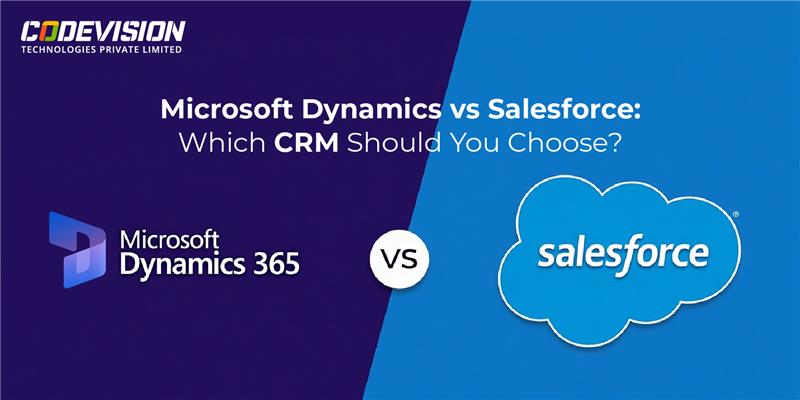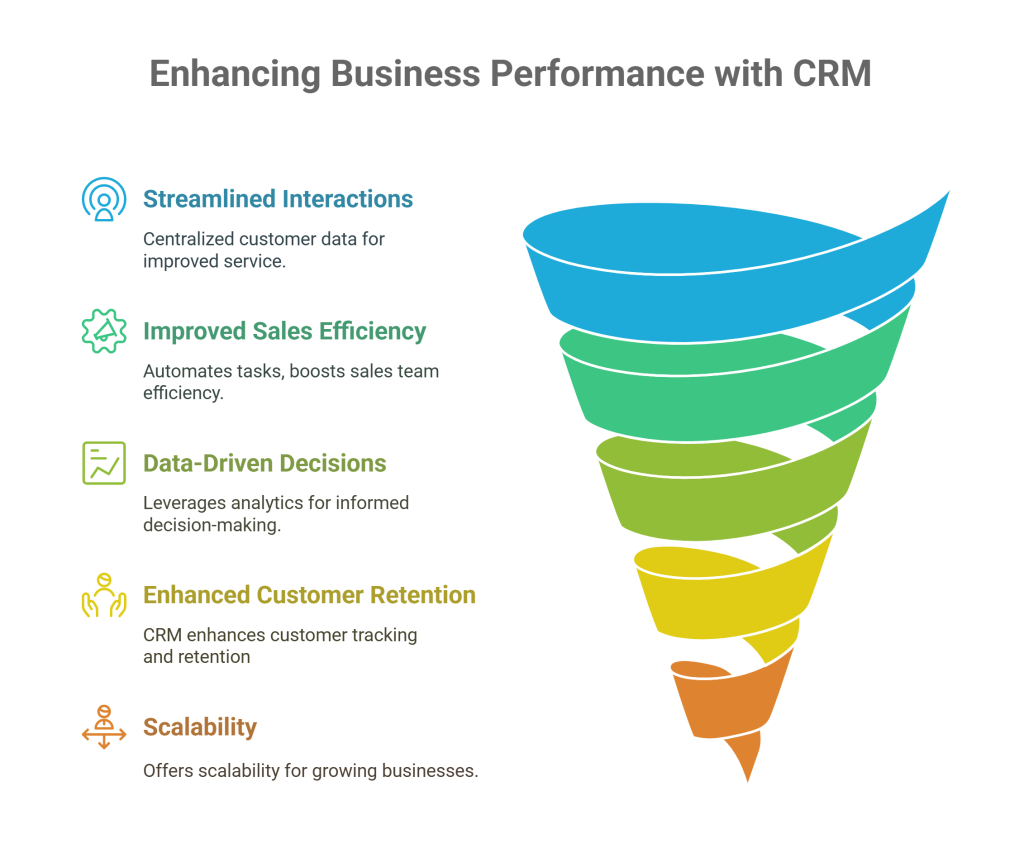Microsoft Dynamics 365 vs Salesforce: Which CRM is More Scalable for your Business?

Choosing the right Customer Relationship Management (CRM) platform is a critical decision for businesses looking to drive sales, enhance customer experiences, and boost productivity.
Two of the leading CRM solutions on the market are Microsoft Dynamics 365 and Salesforce, both of which offer a range of features to cater to businesses of all sizes and industries.
However, with the evolving needs of businesses in 2025, it’s essential to understand the unique advantages, limitations, and advancements of each platform before making a choice.
In this blog , we’ll dive into the key differences between Microsoft Dynamics 365 and Salesforce to help you make an informed decision based on your business’s specific needs.
Why Do You Need a CRM System?
Before diving into the specifics of Dynamics 365 and Salesforce, let’s first explore why a CRM system is essential for modern businesses.
- Streamlined Customer Interactions: A CRM system helps businesses centralize all customer data in one place, making it easy for teams across departments—sales, marketing, customer service—to access valuable insights. This leads to better customer service and more personalized experiences.
- Improved Sales Efficiency: CRMs automate manual tasks like data entry, lead tracking, and reporting, allowing sales teams to focus on high-value activities, such as engaging with prospects and closing deals.
- Data-Driven Decision Making: With built-in analytics and reporting tools, CRMs provide actionable insights that allow businesses to track performance, identify trends, and make informed decisions. From sales forecasts to customer behavior analysis, a CRM enables data-driven strategies.
- Enhanced Customer Retention: A CRM helps businesses track customer interactions and identify potential issues before they arise. By offering timely and personalized service, businesses can strengthen customer loyalty and increase retention.
- Scalability: As businesses grow, so do their customer bases. CRMs offer scalability, allowing organizations to manage more customers and expand their operations without sacrificing the quality of customer service.
In summary, CRM software is a powerful tool that streamlines customer management, boosts sales, and provides actionable insights, making it indispensable for businesses looking to stay competitive and thrive in today’s fast-paced market.

Overview of Microsoft Dynamics 365 and Salesforce
Both Microsoft Dynamics 365 and Salesforce are leading CRM solutions, but they cater to different needs and environments. Here’s an overview of both platforms.
Microsoft Dynamics 365:
Microsoft Dynamics 365 is an integrated suite that combines both CRM and Enterprise Resource Planning (ERP) functionalities, offering a unified solution for businesses.
It’s designed to help organizations manage customer relationships, operations, finances, and supply chains all within one platform.
What sets Dynamics 365 apart is its deep integration with other Microsoft products like Office 365, Teams, and Azure, making it a seamless choice for businesses of all sizes such as Large Enterprises, SMEs, Start-ups, etc.
Dynamics 365 offers a modular approach, allowing businesses to select only the functionalities they need, such as sales, customer service, marketing, and operations.
Additionally, its built-in AI and business intelligence tools—powered by Power BI—help businesses automate workflows, gain insights, and enhance decision-making.
Salesforce:
Salesforce is a cloud-based CRM platform known for its flexibility, scalability, and robust ecosystem. It is one of the most widely used CRM platforms globally, particularly popular among companies looking for customization and third-party integration options.
Salesforce provides a full suite of CRM tools, including sales, service, marketing, and analytics. It is also known for its ability to grow with a business, offering a high degree of customization through its Salesforce Lightning interface, which allows users to personalize dashboards, workflows, and business processes.
Additionally, Salesforce has a thriving app marketplace, AppExchange, where users can find thousands of third-party integrations to enhance functionality.
Comparison: Microsoft Dynamics 365 vs. Salesforce
| Feature | Microsoft Dynamics 365 | Salesforce |
|---|---|---|
| Ease of Use & UI | User-friendly for Microsoft ecosystem users. Smooth Office 365/Teams integration. | Customizable UI with Salesforce Lightning; requires more initial setup. |
| AI & Automation | Advanced AI (Azure AI, Power BI), predictive analytics, cross-functional automation. | Einstein AI focuses on personalized customer engagement and lead scoring. |
| Customization & Scalability | Highly scalable, modular, integrates with Power Apps & Power Automate for tailored solutions. | Highly customizable with Lightning framework, but can be resource-intensive. |
| Integration | Seamless Microsoft ecosystem integration (Outlook, Teams, Azure), highly scalable. | Strong third-party integration through AppExchange, but less centralized than Dynamics. |
| Pricing | Flexible, modular pricing; pay only for needed features. Cost-effective for growing businesses. | Tiered pricing; can become expensive with advanced features and customizations. |
| Deployment Options | Cloud-based with on-premise and hybrid options. | Primarily cloud-based, highly flexible. |
| Customer Support | Extensive support with Microsoft-backed resources. | 24/7 support, robust community forums and resources. |
| Market Fit | Ideal for businesses already using Microsoft products and large enterprises. | Best for customer-centric businesses needing extensive customization. |
Conclusion
In conclusion, both Dynamics 365 and Salesforce offer strong CRM solutions, but Dynamics 365 stands out for its seamless integration with Microsoft products such as Outlook, Teams, and Office 365, providing a more unified experience for businesses.
It offers robust capabilities beyond CRM, including ERP functionality and advanced analytics through Power BI, which can be advantageous for organizations seeking a comprehensive platform.
While Salesforce excels in customization and a strong app ecosystem, Dynamics 365’s flexibility and deep integration within the Microsoft ecosystem make it an attractive option for many businesses looking for an all-in-one solution.
Ready to unlock the power of seamless integration? Reach us today to explore how Dynamics 365 can revolutionize your business!

Microsoft Copilot vs Google Gemini — The Future of AI-Powered Productivity




